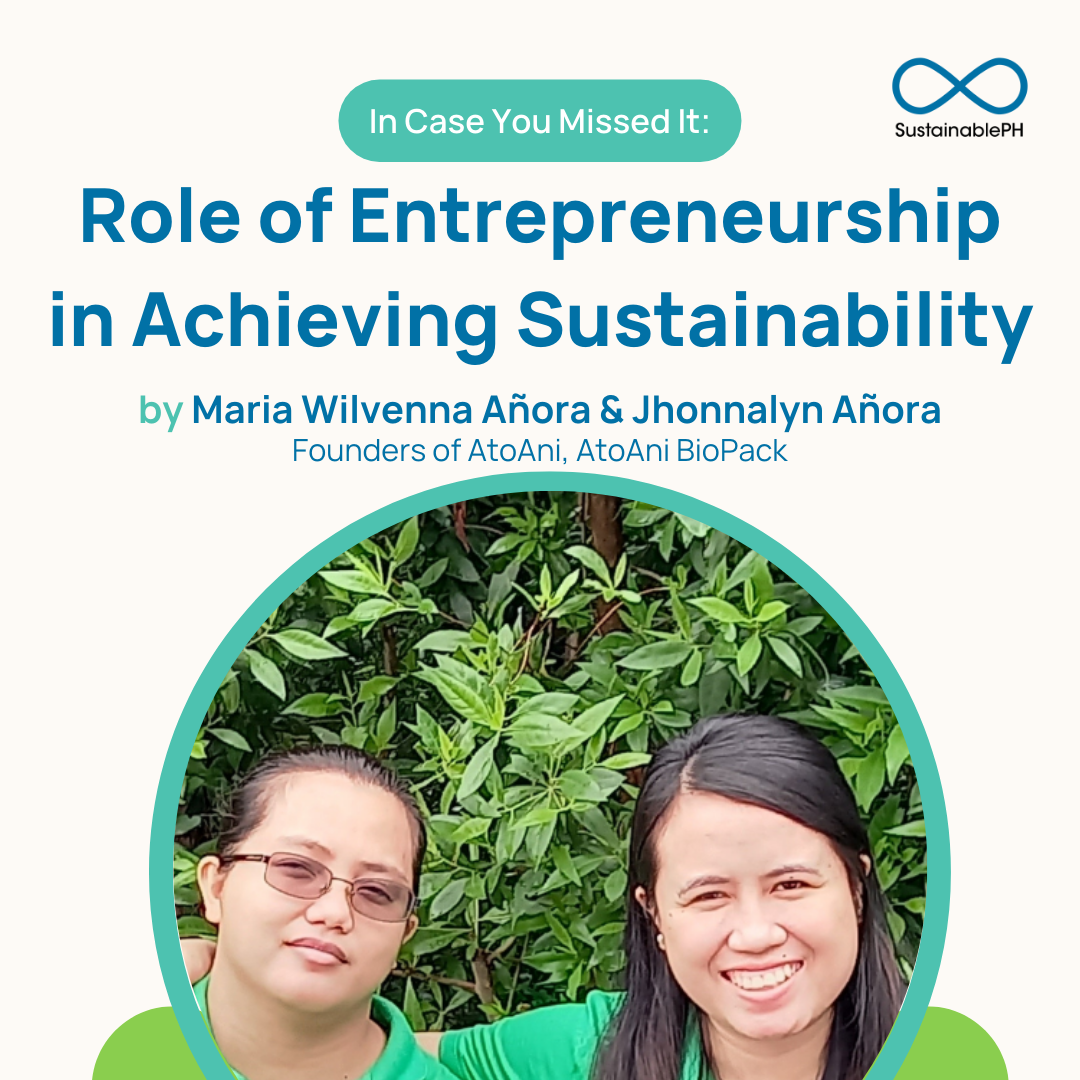
Role of Entrepreneurship in Achieving Sustainability
Entrepreneurs play a crucial role not only in the Philippine economy but also in the social and environmental impacts on our society.
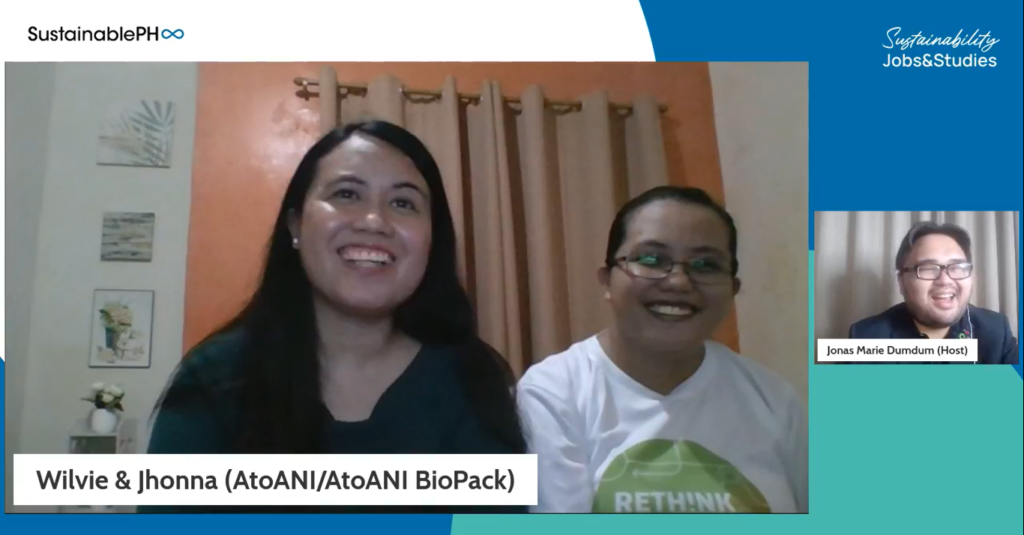
#AMA 04 with Maria Wilvenna Añora and Jhonnalyn Añora
Meet our sustainability champions for this session, Maria Wilvenna Añora – Co-founder and Head of Strategy & Business Development, and Jhonnalyn Añora — Co-founder and Head of Partnerships & Sales. They are the brilliant minds behind AtoAni – a social enterprise that facilitates a data-based sustainable agriculture model to supply fresh produce to its existing B2B customers, and AtoAni BioPack – a startup social enterprise that aims to produce and distribute biodegradable packaging made from agro-industrial wastes commercially.
Their connection with agriculture sprouted since their grandparents were into farming back then. Wilvie and Jhonna are currently connected and partnered with nine (9) farming communities with 160 farmers in Bohol and Cebu with their AtoANI Partnership Program which aims to not only market farmer’s products but also provide crop growing guidance to reduce crop wastage.
With the existing partner farmers that they have for AtoANI, they have realized that lots of agricultural wastes are present in the vicinities of their partner farmers’ locations particularly rice hulls and straws in Bohol and corn husks in Cebu. With this in mind, they thought of using them for a more sustainable product.
What products/services have you been offering since you launched?
Jhonna proudly shared that under their agriculture social venture, they provide the direct linkage of their partner farmers’ crops and at the same time provide recommendations on what crops to plant — based on soil compatibility and customer demand through their proprietary analytics platform which they are currently improving to add more features with the support of DOST PCIEERD to better serve their existing and future partner farmers and B2B customers.
For BioPack, they are in an ongoing process of improving the prototype of their sustainable packaging from agro-industrial wastes in which they have created several small-scale prototypes intending to make it commercially acceptable and available. “We hope to partner with applicable government institutions and manufacturers to scale it up,” according to Wilvie.
Can you share the challenges and successes you have experienced?
They had several talks with the paper manufacturing industry, and the challenge was that a lot of manufacturers are quite hesitant to adapt to their very goal, given that they already have established processes during manufacturing. But they always wanted to start with identifying the root causes of problems and, from there, draw concrete solutions.
Within the farmers, under their agriculture social venture, AtoANI, Jhonna shared that the challenge was to convince them since most of the farmers are used to the conventional way of farming although there are farmers who are interested in it. It was also a challenge to encourage them to make the switch and change their mindset.
Why do you think social innovation and entrepreneurship are important ways to become more sustainable?
Wilvie believes that innovation, in general, is one way of achieving sustainability. She shared a quotation from Albert Einstein, “We cannot solve our problems with the same thinking we used when we created them.” According to her, addressing solutions in a new way is a sign of progress.
How would you respond to information that people consume more single-use plastics during the pandemic because they are safer and easier to handle compared to alternative packaging models?
It starts with self-discipline. But when you start it, you should continue doing it. “No plastic is fantastic.” Manufacturers also play a vital role in promoting a sustainable way of packaging. If you’re offering biodegradable packaging, people can really not do anything about it, they’ll have a chance to accept it.
“I think the problem right now is that people are aware of the negative impacts of plastic but sustainable alternatives are not readily available. I think, for AtoANI BioPack, what we lack are partnerships with manufacturers that if we could make things work together, the public and the private sectors, then we’ll eventually achieve our goal towards sustainability.”
What advice do you like to share with budding entrepreneurs to create something similar to what you did?
“When you are an entrepreneur, you are accountable to the whole thing (business)…It’s a matter of commitment, and committing to your cause no matter what the case is.”
Wilvie and Jhonna showed that there are times that our plans would not go according to what we wanted to happen. But for them, it’s a matter of commitment, like we have a cause to move forward and to commit to it.
We have a lot of things that we need to be flexible about. Being an entrepreneur is a matter of flexibility. You have a goal. It’s just that stick to the goal, but then the plan might change, and you should be okay with that.”
If you’re curious and wanted to hear more about their entrepreneurial journey, watch it here: AMA #4
Sustainability Jobs – Philippines is a group for sustainability professionals exploring for opportunities in ESG, sustainability, and sustainable development. Join the community and conversation for FREE! Be updated on sustainability jobs and learning opportunities at Sustainability Jobs – Philippines.
And if you’re a practitioner and/or professional looking to grow your skills, network, and career in sustainability, join the Society of Sustainability Practitioners (SSP) — the country’s first association of sustainability professionals nationwide. You may apply to be a member through SSP’s registration form. We’ll see you there!
Edited by: Wilvie Añora
Photo Header by: Crisyll Torres
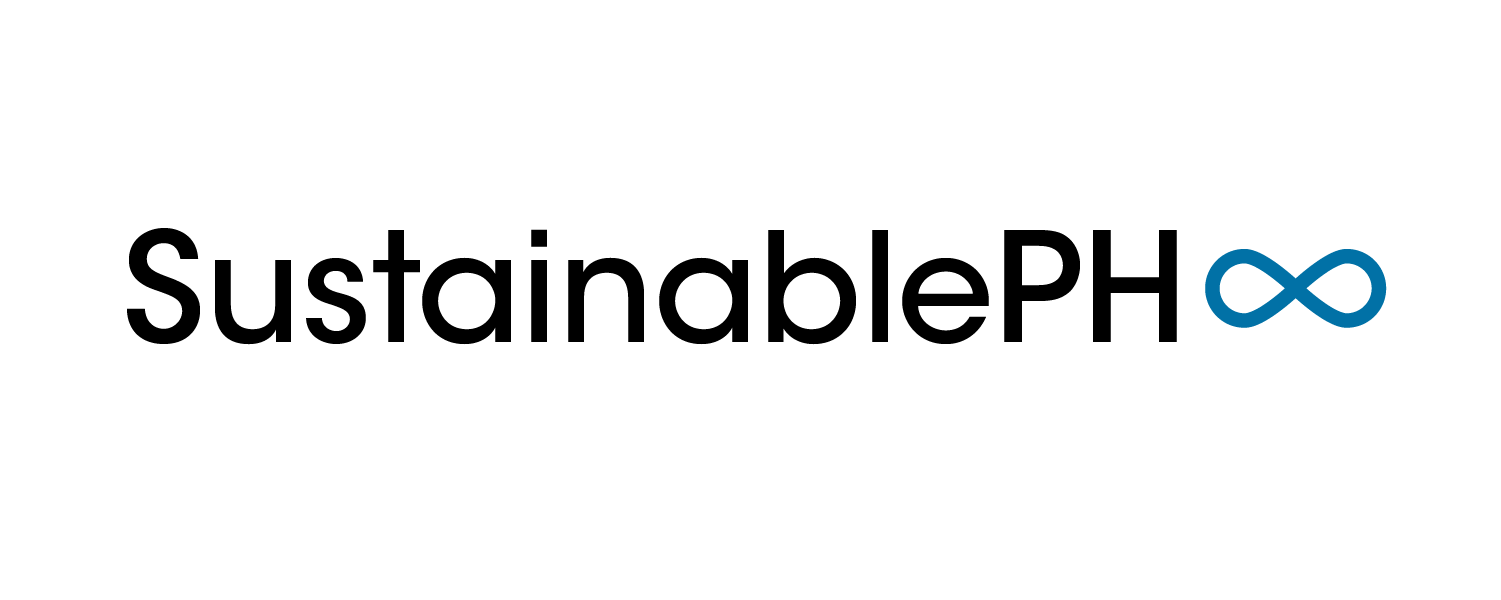
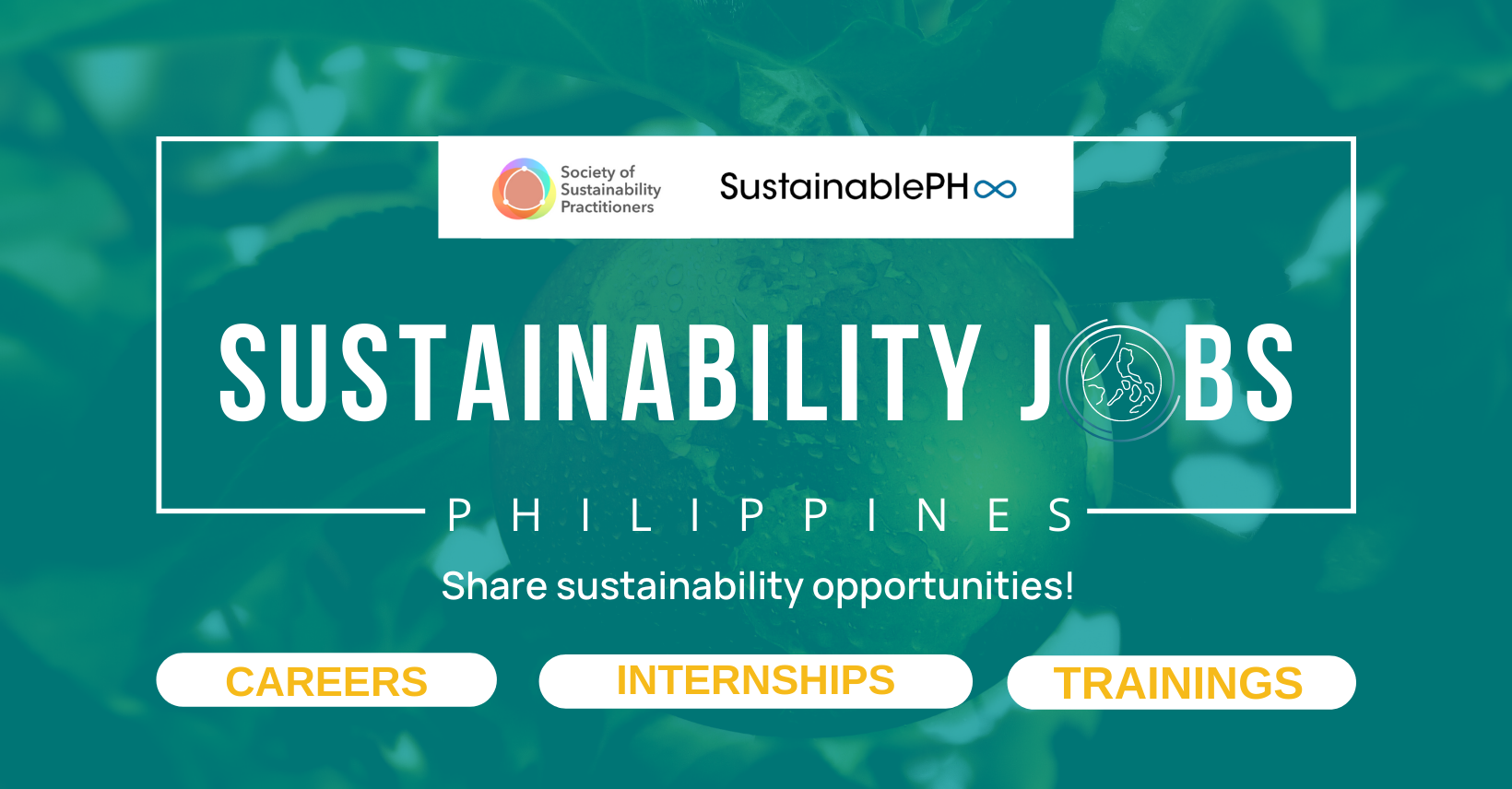

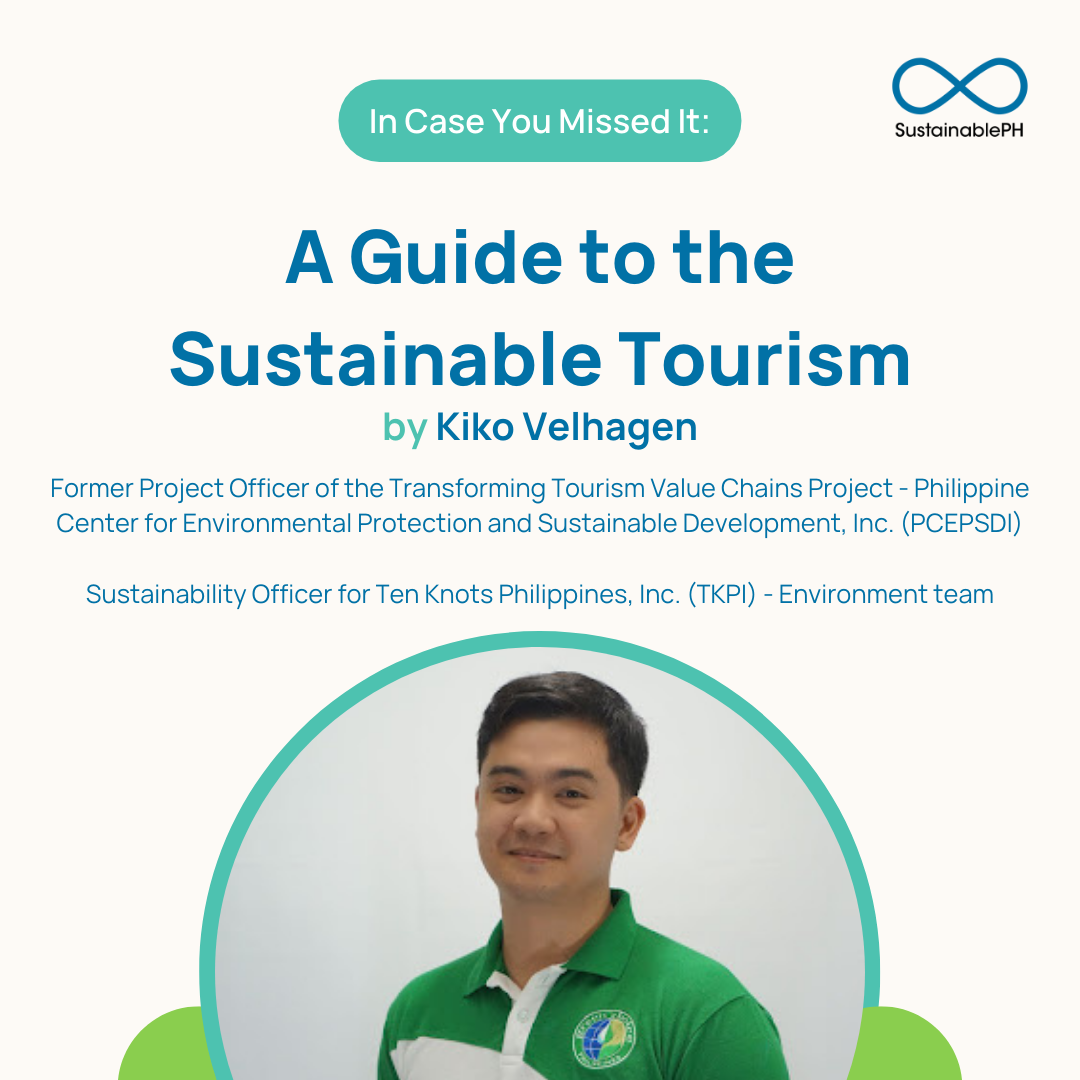
Leave a Reply